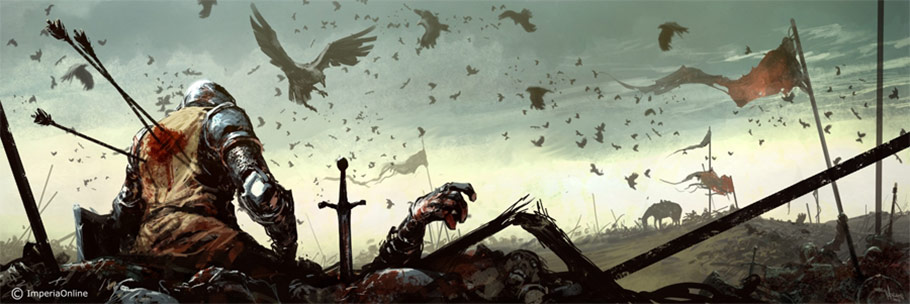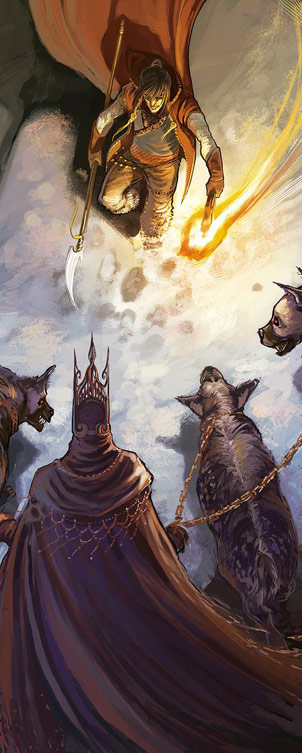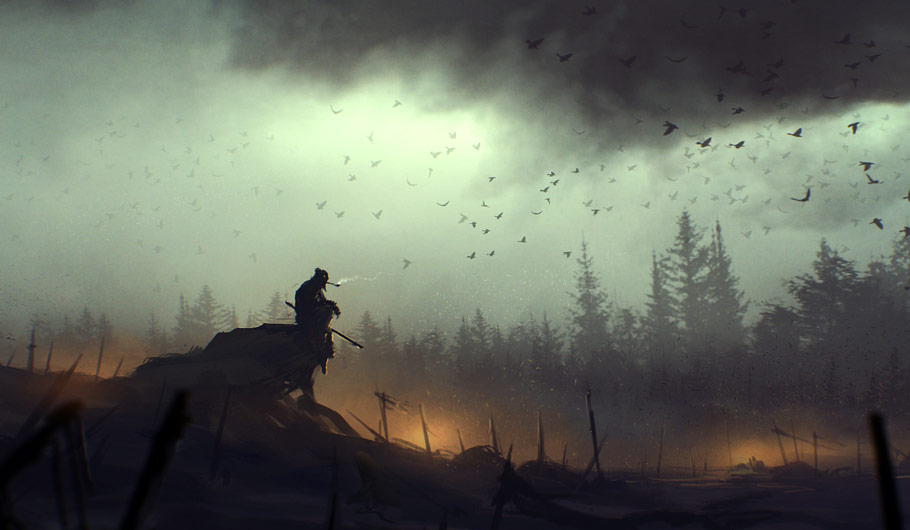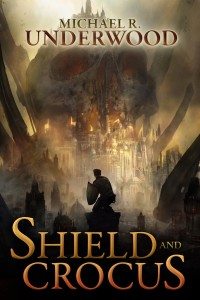I was a college freshman on 9/11. The events of that Tuesday morning kicked off the 21st century in the United States of America, and changed my life, as it changed the lives of so many young people of my generation in the USA and beyond.
9/11 started the “War on Terror,” two wars in the middle east, poured nitrous oxide into the burning engine of the United States’ national debt, and set the tone for the first decade of the 21st century in the USA, the first decade of my adulthood. I remember telling classmates that we needed to write to our representatives, ask that they not go and start a war over this, that we could do better.
I created an Individualized Major of Creative Mythology, with the aim of studying how myths and legends were structured, how the ur-stories of world cultures were formed.
When I arrived at Indiana University, I declared an East Asian Studies major. I wanted to learn more Japanese, study Japanese history, and go off and work for a video game company, or an anime company, or something involving that skill, and that interest. But after 9/11, I was flailing for meaning, desperate to find some way forward as the world very quickly spiralled away from the future I had expected. As members of my age cohort signed up for the armed services, to be analysts, anything to help, I looked back to Mythology, to hero legends, and in looking back, saw my path forward.
We make meaning out of stories – that’s what humans do. I needed to make meaning out of what was happening in my world, needed to imagine an alternative to the path that history was taking, to dream a brighter future. In spring of 2002, I created an Individualized Major of Creative Mythology, with the aim of studying how myths and legends were structured, how the ur-stories of world cultures were formed, so that I could make 21st century myths and legends to help point the way forward, to see through the cloud of ashes and confusion and anger left by the fall of the towers.
But 9/11 wasn’t the first time the WTC towers had loomed tall in my life, with their presence or their absence.
The 1993 World Trade Center bombing happened two days after my 10th birthday. My mom was walking me home from school, the two of us about to get on the subway, when I saw the smoke in the distance, all the way from Brooklyn. We had to take the subway because I’d been attending a private school next to prospect park after months of being bullied at public school, already the odd one out in second grade. The public school was under-funded, the curriculum elementary compared to the small private school I’d been attending before in Texas, and so I was both under-stimulated and ostracized. That school was like a prison for me. So like any good prisoner, I tried to escape.

Art by Tomasz Jedruszek
And escape I did, to an infinitely better (and more expensive) school. I also escaped into reading, into superhero comics, into video games, and later, into role-playing games. I escaped to worlds with heroes, where the desire to learn about and participate in a larger world was rewarded. Where outcasts became heroes.
Escapism is still maligned in art and entertainment, nearly 80 years after J.R.R. Tolkein’s essay “On Fairy Stories,” which delineated the difference between the escape of the prisoner and the flight of the deserter.
“Why should a man be scorned, if, finding himself in prison, he tries to get out and go home? Or if, when he cannot do so, he thinks and talks about other topics than jailers and prison-walls? The world outside has not become less real because the prisoner cannot see it. In using Escape in this way the critics have chosen the wrong word, and, what is more, they are confusing, not always by sincere error, the Escape of the Prisoner with the Flight of the Deserter.”
Fantasy, for me, has always been about the Escape of the Prisoner. The novels, comics, games, and stories I grew up on were never about abandoning responsibility. They were about learning how to bear responsibility, they gave models of heroism, presented templates of possibility, showed me that it was possible to faced insurmountable odds and come out on top.
That spring afternoon as a 2nd grader, sneaking from table to table during lunch, and then running as fast as my seven-year-old legs could carry me, it was escape, not desertion. My duty was to myself.

Art by Elvire De Cock
So what do I do?
I help prisoners escape.
When I was trapped in a school that offered me only abuse and boredom in intervals, I escaped.
When a terrible tragedy set my country on a drastically different path into the 21st century, I committed myself to learning how to dream up better futures.
Now, almost thirteen years later, the 21st century seems every bit as intimidating for me it did in late 2001: the rising threat of climate change, a gridlocked government, and a world that becomes more Cyberpunk day by day, and not in the cool way where we get flying cars or a technicolor VR internet.
So what do I do?
I help prisoners escape.
Is there any wonder why the superhero genre has had a huge upswing in popularity in the last decade? Superheroes are modern hero legends, well-known characters from a shared cultural tradition that are re-invented and re-imagined time and time again in new stories that speak to our current situation.
The newest run of hero legends on film frequently feature heroes trying to find a better path, to transcend or rehabilitate a compromised cultural inheritance and find a better path.
We put our heroes on the screen because we desperately believe that we can do better, that the world can do better.
We put our heroes on the screen because we desperately believe that we can do better, that the world can do better. Because we need to escape the prison of our fear, of our doubt, and most of all, of our cynicism.
Thanks to two foreign wars, increasing income inequality, de-regulation leading to a housing crisis and a financial crash with a slow recovery, rampant political obstructionism, the last thirteen years in America have become a prison for many. A prison of doubt, of fear, of debt, and of cynicism. Hope rallied for some in 2008, and has been dragged through the mud of pragmatism, of compromise, and the disappointment of promises broken. And along the way, we simultaneously elevate hero narratives on one hand and drag our heroes through the grimdark dirt on the other.
If we can’t tell ourselves stories that things can get better, we will never rise to the challenge of making them better.
Step one in escaping is to believe it to be possible. Step two is making a plan, acquiring the tools needed to move from desire to action. We tell ourselves stories to believe that they can happen in the real world, and to give ourselves the emotional and social tools to make a difference, to break out of the world as it is. Too many of us are still prisoners in the world made in the wake of 9/11. But now it’s time to break out and build a new future.
So pick up a pen, a laptop, a camera, or whatever’s at hand.
Let’s tell ourselves a story of a better world and make it so.




Thank you for writing the post.
Many people love fantasy as an escape, a step back, a breath of air fresh and tingling with magic. I believe Tolkien also posited that this escape was an essential part of recovery, of returning emboldened to face the world and make it a better place.
While I was in college, I took a class called Fantasy and Religion, where we studied fantasy texts from a Christian standpoint. I’m not a Christian, so it was interesting to me to learn how spirituality and fantasy can intersect. Since I was a child, fantasy novels have been my own spiritual texts. I want to help prisoners escape, too. Fantasy is a doorway to the imagination.
Thanks for writing this, Mike
Excellent post, Michael! (ps: secret message to 2nd grade Mike: You’re going to be pretty darn amazing soon. Buckle up.)
This article almost made me lose it. So many things just came at once. Before I begin, thank you Aidan for sharing this, and thank you Mike for writing this. Never heard of the author before, so it looks like I have something new to read on my Kindle :)
My grandmother, for almost a year, banned me from reading Fantasy. This wasn’t a bad thing, as she only wanted to open my eyes towards other books. But at the time, I was 19, and just gotten out of my abusive family for six years. 9/11 tied into this. Before, everything was fine. I was your typical junior-high school troublemaker :) but after 9/11 had happened, and it wasn’t until my father had died, I realized why things went so sour. To get straight to the point, we were evicted, lived with our cousin, lived from hotel to hotel, appt. to appt., even living in my father’s 18 wheeler for a summer, the five of us, me, my sister, mom and dad, and our newborn little brother. Even after renting homes, I lived on the ground, no furniture, still being made fun of, all that stuff, all the while hearing my parents scream and fight each other every night. Part of this was stress and lack of funds, because of Bush’s war against terrorism and other economical issues born from that day. I won’t say my family took it the worse, but we took it all right.
How did I escape then? Videogames. I played hits like FF7 and DQ8, I got big into Pokemon and the Tales series. RPGs were the way to go. It was a place where I played as another person, in a bright and vibrant world threatened by evil. I wanted to kill this evil, I wanted to protect its people. Whenever I beat the game, I felt like a hero. Then I return to this grim world. At 17, I read my very first book: The Eye of the World. THAT was what turned me around. After reading Fantasy after Fantasy, I couldn’t get enough. I ate up every book that came my way, read any article I could find, Facebooked and even talked with a lot of authors. This stuff was pure GOLD. And it took me away, just like RPGs did, but in a different way. Then I wanted to write. I always thought of Fantasy as being the only literature to use the cognitive powers of the imagination and subconscious to change the world. as Maya Angelou said (God BLESS Her Soul :( ) A Fantasy can change a Thousand Realities. Now, 24, finishing my time in the US Navy, I DO see the world in the dark place it is, but I do see a light. Probably why I’m attracted to grimdark now :) But since I read this, now I know it to be true. Okay, I’ll stop rambling.
More timely than ever, now.